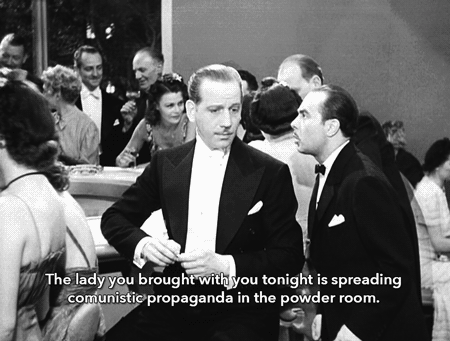Fred Thompson, we hardly knew ye.
Well, actually, we did. And we—or, more importantly, Republican voters—didn’t like what they saw: a halfhearted and curmudgeonly candidate who didn’t seem to have all that much to say.
The failed candidacy of Thompson, who announced his retreat from the presidential race on Tuesday, does not demand much analysis. On paper, he seemed ideal: a Southerner with a conservative bent, a popular television star, and a Republican who did not piss off any major bloc in the GOP coalition. But as any Hollywood veteran knows, a project on paper can look a lot better than what eventually hits the local multiplex or TV screen.
Thompson put in the worst presidential campaign performance of recent years. At times, he didn’t seem to want the part. The media narrative that emerged—Thompson the Lazy Candidate—was, whaddayaknow, kind of true. A few days ago, NPR asked several presidential candidates to name their all-time favorite presidents. The replies were predictable. And Thompson selected George Washington. But his explanation was all-too telling. Thompson did not cite Washington’s military victory over the British or his achievements as the nation’s first president. He said he admired Washington because he had been able to walk away from the presidency after serving two terms. Thompson pointed out that Washington never returned to Washington (the city) once he was no longer chief executive. Thompson was more intrigued by how a president leaves office than how one governs while in the job.
Thompson never had any fire; thus, he didn’t catch fire. He missed a darn good opportunity. The GOP race this time around is a contest to determine which candidate can be the default Republican nominee—the one who offends the least number of primary voters. Each of the major contenders alienates (or provokes concern among) large swaths of Republicans. Rudy Giuliani fancies gay rights and abortion rights (not gun rights). Mitt Romney has flip-flopped on social issues. John McCain is despised by Republican activists for having passed campaign reform legislation and for having questioned the Bush II tax cuts. Mike Huckabee’s fundamentalism scares the country clubbers. Thompson, in theory, would appeal for each of the three main GOP constituencies. For the national security conservatives, he talked a mean game on Islamofascism. For the social cons, he highlighted his solid voting record against abortion rights. For the economic conservatives, he called for limited government and reining in Social Security and Medicare spending. At the start of the campaign, one of his aides told me that Thompson would be embraced by Republicans as a modern-day Davy Crockett, another Tennessean
So what was not to like? Nothing but Thompson himself. He was no Davy Crockett. A week ago, I speculated that Thompson was flopping on the campaign trail because he had become too accustomed to being handed television and film scripts in which he merely had to play himself: as a gruff White House chief of staff, a gruff CIA director, a gruff admiral, a gruff senator, or—get this!—a gruff president. He never understood that auditioning for president in real life required much more of him.
Ultimately, his withdrawal from the race doesn’t mean much. The Republican contest is a jumble, and Thompson never developed the sort of political following that he could now easily steer toward another candidate, should he wish to. He’s obviously closer to McCain than to the other Republican contenders. (Thompson was one of only two other Republican senators who endorsed McCain’s campaign finance bill in 1997.) But Thompson’s surrender to the obvious will not automatically translate into votes for McCain.
The conventional wisdom regarding Thompson’s candidacy was that he entered the race too late. But he probably joined the field too soon. He had wild success as a near-candidate. His performance, though, couldn’t match the preseason reviews. He might have fared better had he teased the media and public even longer. And what are the lesson of Thompson’s embarrassing and destined-to-be forgettable candidacy? They are rather basic: messenger matters more than message, and voting does count.




